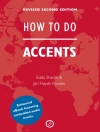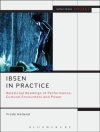New essays by leading scholars giving a new picture of the variety of German expressionist cinema.
This volume of fresh essays by leading scholars develops a new approach to expressionist film. For nearly half a century Siegfried Kracauer’s
From Caligari to Hitler and Lotte Eisner’s
The Haunted Screen have shapedthe understanding of the cinema of this period. However, fifty years on, there is a growing awareness that a new account is overdue. This attempt to rewrite the story of expressionist cinema begins with a fundamentally new interpretation of
Dr. Caligari, and together with fresh views of other expressionist classics, offers new perspectives on important alternative film styles and genres that emerged in films by such eminent directors as Ernst Lubitsch, Joe May, Fritz Lang, Karl Grune, F. W. Murnau, and E. A. Dupont. In pursuing such variety, the book strives for a picture of the cinema in the early years of Weimar that in thematic as well as stylistic terms reflects the vibrant, multifaceted cultural and political developments of the period. The book is a joint venture of the Centre for European Film Studies at the University of Edinburgh, the Institute for Film Studies at the University of Mainz, and the German Film Museum in Frankfurt.
Dietrich Scheunemann was professor of German at the University of Edinburgh and has written and edited several books on German literature and on film and media.
İçerik tablosu
Activating the Differences: Expressionist Film and Early Weimar Cinema – Dietrich Scheunemann
Weimar Cinema, Mobile Selves, and Anxious Males: Kracauer and Eisner Revisited – Thomas Elsaesser
Revolution, Power, and Desire in Ernst Lubitsch’s
Madame Dubarry – Marc Silberman
‘Bringing in the Ghostly to Life’: Fritz Lang and his Early Dr. Mabuse Films – Norbert Grob
Murnau–a Conservative Filmmaker? On Film History as Intellectual History – Thomas Koebner
The Double, the Décor, and the Framing Device: Once more on Robert Wiene’s
Cabinet of Dr. Caligari – Dietrich Scheunemann
Film as Graphic Art: On Karl Heinz Martin’s
From Morn to Midnight – Juergen Kasten
Episodic Patchwork: The Bric-à-Brac Principle in Paul Leni’s
Waxworks – Juergen Kasten
Entrapment and Escape: Readings of the City in Karl Grune’s
The Street and G. W. Pabst’s
The Joyless Street – Anthony Coulson
Fragmenting the Space: On E. A. Dupont’s
Varieté – Thomas Brandlmeier
On Murnau’s
Faust: A Generic
Gesamtkunstwerk? – Helmut Schanze
‘Painting in Time’ and ‘Visual Music’: On German Avant-Garde Film of the 1920s – Walter Schobert
Ruttmann, Rhythm, and ‘Reality’: A Response to Kracauer’s Interpretation of
Berlin. Symphony of a Great City – David Macrae












